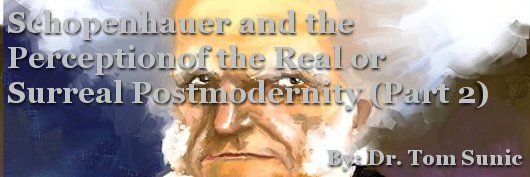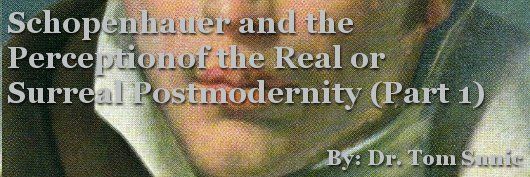In conversation the other day someone pointed out that “…Israelis, not Jews, avoid losing their people…” This was after I had mentioned a book by Ben Hecht, Perfidy, that recounted the last days of the Hungarian Jews, during 1944, and their alleged betrayal by a fellow Jew, one Rudolph Kastner. [The following is based on Hecht’s account; for further detail and some differences see, for example, Wikipedia.]
I had bought the book years ago but only glanced at it, having already heard of such incidents during WWII, so what could be new? Well, it’s actually quite a fascinating tale, as told by Hecht, raising questions about the influence of biological kinship in protecting humans from their ethnic enemies, about the motives driving both Kastner (in contrast with other Hungarian Jews) and Jews then in Palestine, and whether similar forces are at play in the West today.
The particular charges against Kastner were, first, that during WW II, as a prominent member of the Jewish Agency who was supposedly undertaking negotiations with the Nazis to obtain the release of Hungarian Jews, he actually collaborated with the Nazis, arranging for his family and several hundred prominent Jews to escape while accepting that the rest of Hungary’s Jews be sent to the camps. The Germans had hardly any troops available for Hungary to force the deportation of its Jews and were relying enormously on the Jewish leaders like Kastner to convince their fellow Jews that the deportation was for a benign end. A very large number of Jews living near Rumania might have been saved almost instantly by simply crossing the border only a few miles away, and the number of young Jewish males in Hungary was arguably sufficient to overcome the small German force at hand.
Another Hungarian Jew, Joel Brand, also carried out negotiations with Eichmann who agreed to release all Hungary’s Jews provided Brand could obtain, in exchange, a large quantity of trucks, tea and coffee; but Brand was unable to get the cooperation of Jewish leaders either in Palestine or the US, to say nothing of the Allies in general, in obtaining these goods.
Second, after the war, Kastner testified on behalf of several Nazis prominent in the liquidation of Jews, including Kurt Becher, thus prompting Becher’s release. Why in the world would he do such a thing?
After the war, Kastner ended up in Palestine, eventually occupying prominent positions in the Israeli government after independence. Hecht’s book is largely an account of a rather incredible legal proceedings in the 1950s, which captivated all of Israel. It was brought by the Israeli government against Malchiel Greenwald who had written a pamphlet exposing the egregious behavior of Kastner and others.
The trials brought to light that Jewish leaders of the day, from Ben-Gurion, Chaim Weizmann, Moshe Sharett and so on all the way to people in the Jewish Agency, itself, had connived with the British to prevent Hungarian Jews from entering Palestine, with the result that half a million died. But they wanted a complete cover-up. Unfortunately for them, Greenwald had an extremely good defense attorney, Shmuel Tamir. In spite of massive government pressure, Greenwald was acquitted in the first trial of all charges.
But the government, determined to stick it to Greenwald, went to appeal. The five Supreme Court justices upheld the verdict concerning Kastner’s testimony on behalf of Becher. But he was acquitted, by three to two, on collaborating with the Nazis during the war. That combination of verdicts “…made it imperative that the government put Kastner on trial…” for collaboration. [p. 202] But then Kastner was murdered, by the government, it was first thought, to keep him from testifying further (and further incriminating the government). But it seems to have been vigilante justice instead. According to Hecht, the Israeli government desperately hoped to remove this matter from all discussion, letting the passage of time erase most people’s memories.
[adrotate group=”1″]
How are we to understand this tale? Does it in any way diminish the role that biologists have long maintained exists for biological kinship, or cause us to doubt the considerable cohesion Jews are reputed to have?
Kastner, himself, would seem to have defied a biologist’s expectation by not doing what he apparently could have done to protect most Hungarian Jews. According to Hecht, he was greatly affected by and attracted to the power exhibited by important Nazis, eventually feeling that he had become “good friends” with that elite bunch. Shades of the “Stockholm Syndrome.” The Germans were so confident of their assessment of Kastner’s character and of their manipulation of him that they even left him alone with people (foreign diplomats) to whom he could have spilled the beans about the enormity of the slaughter — but he didn’t.
On the other hand, he did succeed in getting the release of his extended family and a few hundred other elite Jews. Hecht doesn’t mention that he was the recipient of any big financial payoff (apart from being very well treated as a guest of the Germans). This would suggest that he was not a sociopath but was motivated instead by some sort of emotional fulfillment. (Nevertheless, the Wikipedia article notes that Greenwald himself accused Kastner of reaping a fortune from the few wealthy Jews he saved, many of whom were elite, well-connected, secularly oriented members of Mapai, Israel’s ruling party at the time, whereas the Jews who were left to perish tended to be poor and ultra-Orthodox.)
What Kastner’s motives were are still puzzling. Hecht sees Kastner as extremely affected by the way the Nazis treated him, not just in the amenities provided him when he was their guest but in the way they “respected” him as a person, as though part of their (powerful) group. But perhaps, too, there was a role for fear. Hecht sees a parallel between Kastner’s betrayal of fellow Jews and the betrayal of Joan of Arc by the French judges who were “afraid of the English who sat in power over them. Having, out of this fear of their masters, decided on the heresy of Joan, her judges too found her continued defiance of their cowardice wicked…” (p. 236)
Another possible reason that I’ve heard for the Jewish leaders’ actions (including Kastner’s, as well?) was the role of the British in establishing a Jewish homeland in Palestine — and their supposed commitment in the Balfour Declaration to preventing the rights of the indigenous Palestinian Arabs from being overrun by too vast and rapid an influx of Jews. (Not discussed by Hecht.) The Jewish leaders, convinced of the overwhelming necessity for such a homeland, would have seen no alternative but to accept the sacrifice of millions of Jews, given that those Jews were “not wanted” by anyone else in the world. (Many ordinary Jews, especially those in the Irgun, were willing to go for broke and defy the British as well as Arabs.)
If this perspective is correct, then the importance of biological kinship has not been defied at all. There was simply a tragic dilemma as to how, strategically, to go about saving the most of one’s kin in the long run. In fact, the saved Jews were the “best Jews” according to Hecht since, as noted above, the saved Jews tended to be wealthy and secular whereas the Jews left behind were relatively poor and strongly religious. According to Greenwald, quite a few were Mizrahi Jews, a group that is relatively less related to Kastner’s Ashkenazis. This would indicate that the results of Kastner’s decision were eugenic and follow the logic of favoring Jews that were more like himself.
Regardless of these interpretations of Kastner’s and the Jewish leaders’ behavior, the overwhelming horror induced in Jews everywhere that such a betrayal might have taken place, contrary to all their normal expectations, is, itself, testimony to the power of kin based cohesion among Jews.
Anthony Hilton is Associate Professor of Psychology (retired), Concordia University, Montreal.








